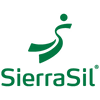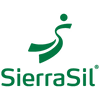Blog
A quick weight loss program may sound like the perfect way to shed those extra pounds; however, following a fad diet can actually cause more harm than good to your body and your waistline, reminding us that there are no...
Continue reading
At the start of every New Year, many of us start the yearly tradition of thinking about ways to improve their lives by making resolutions such as losing weight, exercising more often, or saving more money. We may conjure up...
Continue reading
This recipe is a great low-glycemic option to substitute for any traditional holiday potato dish. The sweet potatoes are packed with nutrients such as beta-carotene, vitamin B6, minerals and fiber. Turmeric is a potent source of antioxidants and deepens the...
Continue reading
Now that the holiday season is in full swing, many of us are contemplating the age old wrinkle-promoting holiday questions…. What do I buy for my family or loved ones? When am I going to fit shopping into my busy...
Continue reading
Feel good about bringing a batch of these holiday cookies to your next social event or workplace. The spices and dark chocolate chips make the perfect combination for a delicious treat. The optional addition of cayenne pepper gives it that...
Continue reading



